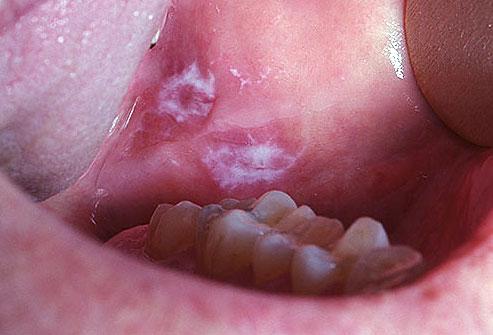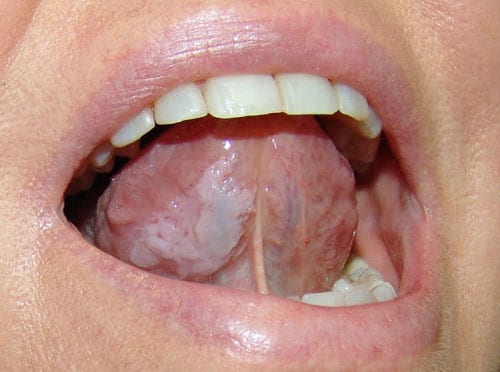
Leukoplakia (also called as leukopenia) is a condition where there is a build up of white substance in the mouth that causes inflammation of the lining of the gums. Leukoplakia is usually a reddish brown or grey patch that develops on either the upper or lower part of your mouth. It is normally the body's response to chronic irritation of the outer mucosal membranes of your mouth.
Leukoplakia occurs most commonly in women and sometimes men
The condition is very rare in children; however it can occur at any age due to several reasons. There are certain factors which can lead to leukoplakia; such as excessive use of antibiotics, pregnancy, smoking, diabetes, alcoholism and certain types of cancer.
The white material found in the mouth can have other causes, making it very difficult to diagnose and treat leukoplakia. This is because symptoms can mimic those of other diseases. Some of the possible symptoms include tooth sensitivity, pain and soreness in the gums, swelling and redness of the teeth, and a general feeling of discomfort or pain in the mouth. These symptoms do not necessarily mean you have leukoplakia, but they can help you find a solution for leukoplakia.
There are several theories about the origin of the white matter in the mouth. There is a theory that this is somehow related to an excess of bacteria in the body. This could be due to unhealthy digestion, such as Crohn's disease. Another theory suggests that the white matter in the mouth is caused by an abnormal blood supply. This could be due to an infection such as chlamydia or syphilis.
If left untreated, leukoplakia can cause serious complications such as dental abscesses. Cholestasis may form in the mouth; this condition causes gum burning and soreness, pain and discomfort while eating, and can eventually lead to cholestasis.

If you experience symptoms such as pain or swelling in your mouth, see your doctor immediately
You should be treated for leukoplakia. Treatment options include antibiotics or anticoagulants, which can reduce the activity of bacteria that cause infection and prevent new ones from growing.
If you find the white substance in your mouth to be of a mild nature, you may have no problem with it. However, if the white substance in your mouth is more serious than you can tolerate, you will need to see your doctor. Antibiotics are usually prescribed for people with severe leukoplakia. However, if you are pregnant, you may need to avoid taking antibiotics, since they are not usually approved for pregnant women. Your doctor may recommend a combination of antibiotics along with a topical cream to control the infection.
Your doctor will recommend surgery for cases where the white substance in your mouth is too severe. This procedure involves the surgical removal of the white substance from the affected area. A surgical technique known as scaling or suctioning may be used for leukoplakia; in the case of oral surgery, a special tool called an endoscope is used to remove the white material from the infected area.
During surgery, there may be bleeding and bruising. This is common with all surgeries, but if you suffer from severe leukoplakia, you should seek immediate medical attention. It is also possible for the patient to bleed during the recovery process.
Leukoplakia has also been linked to other skin infections including the stomatitis and the thrush. If you develop an infection, you should seek medical help so you can start treatment for it.
It is important to note that the white substance in your mouth may be harmless, especially if it is caused by a bacterial infection. However, the white substance in your mouth is still a concern and you should be treated for it if you have continued symptoms after a few days.

